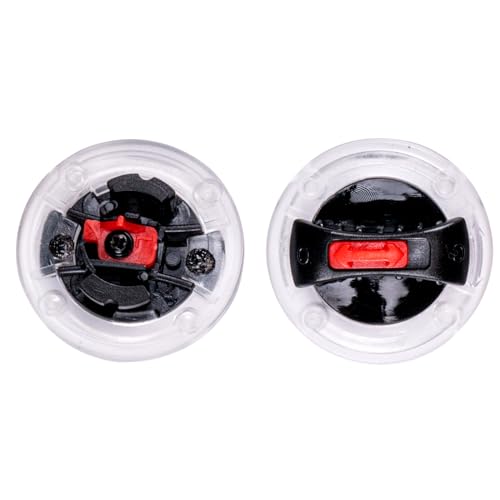Saga said: "I really wish we'd have more interaction with people who live different lives than the way we live. I think that would solve a lot of our problems."
This is a theme of conflict historically proven as the fall of basically every structured civilization. Study ANY one... and you'll find that the fall is commensurate to the loss of mutual support and cohesive cooperation amidst the varying environs of human and geophysical topography.
Congrats on securing a generator, AApple... having one is ONE piece of a more complicated scenario for disaster-proofing. You need a plan for fuel supply and conservation, a plan for managing loads, and a plan for maintenance.
When large, and extended outages occur, gasoline becomes very unavailable... because gas stations frequently lose the ability to pump fuel. As others already noted... modern gasoline doesn't 'store' for a very long time before the quality degrades. Diesel CAN be better... Natural gas IS fairly reliable, but I wouldn't say it's immune... in seismic areas, NG distribution networks are often fitted with fast-cutoff valving, such that a good earth-shaking will trigger an emergency lock-off of flow, just in case there's a chance of pipeline or main damage. Propane wins the long-term storage quality award... sealed in the tank, it simply cannot 'go bad'... but it may not be legal for a bulk tank, or practical in your location.
My generators (I have four in the generator shed right now) are fed from two 1000-gallon propane tanks... the same that feed the furnace and water heater of my farmhouse. My MINIMUM emergency loads for winter include furnace, well, water heater (gas), sump pumps, refrigerators, freezer. My Minimum Emergency loads for summer include sump pumps, well, refrigerators, freezers, and ONE 2-ton air-conditioning compressor/condenser, and 1 air handler (I have two of each).
My minimum emergency load will run on my Kohler 6.5R22, it's a 6.5kw 4-cylinder liquid-cooled, and has enough strength to also handle the microwave oven, and a TV set.
IF I decide that we need MORE power, I switch to either a 12.5kw 4-cyl, or a 35kw 6-cyl unit. If we're on an extended outage, we will plan times when laundry, cooking, etc., will occur such that switching to the BIG one takes advantage of it's abilities, and once done, we switch back to smaller machines to reduce fuel consumption. Our longest outage so far has been just under 2 weeks during a summer, and it required 310 gallons of propane. Our most frequent outage scenario is ice storms with high winds... wintertime. The highest continuous draw being air conditioning, our winter-storm outage consumption is generally less than a summer event.
This is a theme of conflict historically proven as the fall of basically every structured civilization. Study ANY one... and you'll find that the fall is commensurate to the loss of mutual support and cohesive cooperation amidst the varying environs of human and geophysical topography.
Congrats on securing a generator, AApple... having one is ONE piece of a more complicated scenario for disaster-proofing. You need a plan for fuel supply and conservation, a plan for managing loads, and a plan for maintenance.
When large, and extended outages occur, gasoline becomes very unavailable... because gas stations frequently lose the ability to pump fuel. As others already noted... modern gasoline doesn't 'store' for a very long time before the quality degrades. Diesel CAN be better... Natural gas IS fairly reliable, but I wouldn't say it's immune... in seismic areas, NG distribution networks are often fitted with fast-cutoff valving, such that a good earth-shaking will trigger an emergency lock-off of flow, just in case there's a chance of pipeline or main damage. Propane wins the long-term storage quality award... sealed in the tank, it simply cannot 'go bad'... but it may not be legal for a bulk tank, or practical in your location.
My generators (I have four in the generator shed right now) are fed from two 1000-gallon propane tanks... the same that feed the furnace and water heater of my farmhouse. My MINIMUM emergency loads for winter include furnace, well, water heater (gas), sump pumps, refrigerators, freezer. My Minimum Emergency loads for summer include sump pumps, well, refrigerators, freezers, and ONE 2-ton air-conditioning compressor/condenser, and 1 air handler (I have two of each).
My minimum emergency load will run on my Kohler 6.5R22, it's a 6.5kw 4-cylinder liquid-cooled, and has enough strength to also handle the microwave oven, and a TV set.
IF I decide that we need MORE power, I switch to either a 12.5kw 4-cyl, or a 35kw 6-cyl unit. If we're on an extended outage, we will plan times when laundry, cooking, etc., will occur such that switching to the BIG one takes advantage of it's abilities, and once done, we switch back to smaller machines to reduce fuel consumption. Our longest outage so far has been just under 2 weeks during a summer, and it required 310 gallons of propane. Our most frequent outage scenario is ice storms with high winds... wintertime. The highest continuous draw being air conditioning, our winter-storm outage consumption is generally less than a summer event.

















































